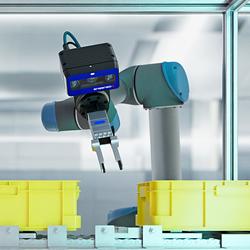Brain Navi Develops New Robot Performing Nasal Swab Tests to Prevent Cross Infections
With the Brain Navi Nasal Swab Robot's assistance, users can test safely around the clock, so as to spare medical health care workers from the high-risk environment during sample collecting. With the unique robotic help, users can control the spread of the virus while waiting for a vaccine and prevent cross-infections.
Inspired by the pandemic, Brain Navi developed a new robot to perform nasal swab tests autonomously to prevent cross infections so we can save the medical system and reestablish economies. The coronavirus caused the lock-in policy over the world. To reopen and reboot the economy in this pandemic, a large scale of testing is the essential key and solution, but it needs to be done "safely and effectively." With the Brain Navi Nasal Swab Robot's assistance, users can test safely around the clock, so as to spare medical health care workers from the high-risk environment during sample collecting. With the unique robotic help, users can control the spread of the virus while waiting for a vaccine and prevent cross-infections.
In the middle of the COVID-19 world pandemic, the Bio Asia Taiwan 2020 exhibition still took place under high safety participation requirements. In this significant event, the Brain Navi Nasal Swab Robot was presented in public for the first time. It was a great honor to demonstrate the Robot's functions to Taiwan's President Tsai, Ing-wen, during the exhibition.
The newly developed Brain Navi "Nasal Swab Robot" helps to reduce staff-patient contact with highly infectious diseases at the point of testing by autonomously navigating and safely collecting patient samples. The Robot automatically recognizes the patient's facial structure and the nostril's location independently and gently takes the samples to avoid close contact with patients. The Brain Navi Nasal Swab Robot uses some fundamental functions of NaoTrac, the innovative "Neurosurgical navigation robot," developed by Brain Navi, which successfully performed 15 Human trial cases at the Hualien Tzu-Chi Medical Center.
The Brain Navi Nasal Swab Robot's application review of the Ministry of Health and Welfare's clinical trial in Taiwan was approved. Brain Navi is in the process of approval in the US FDA for Emergency Use Authorization (EUA) and Taiwan TFDA.
About Brain Navi:
Brain Navi Biotechnology Co., Ltd. based in Taiwan's Hsinchu's Biomedical Science Park develops innovative navigation and robotic techniques for surgeons to improve the accuracy, streamlining surgical procedures, reduce learning curves and helping save lives. Brain Navi's team has advanced competencies in surgery, medicine, biomedical engineering, artificial intelligence, robotics, and mechanical engineering.
Featured Product

